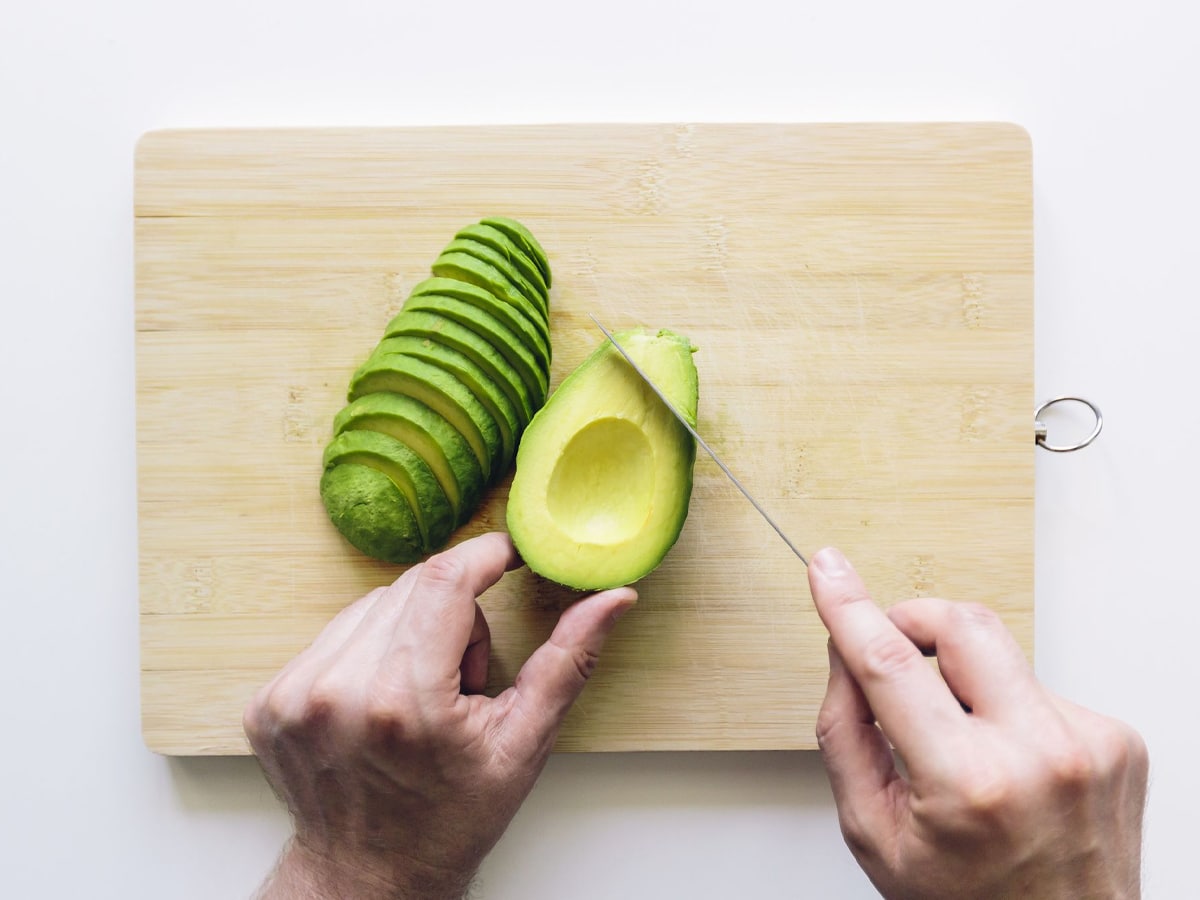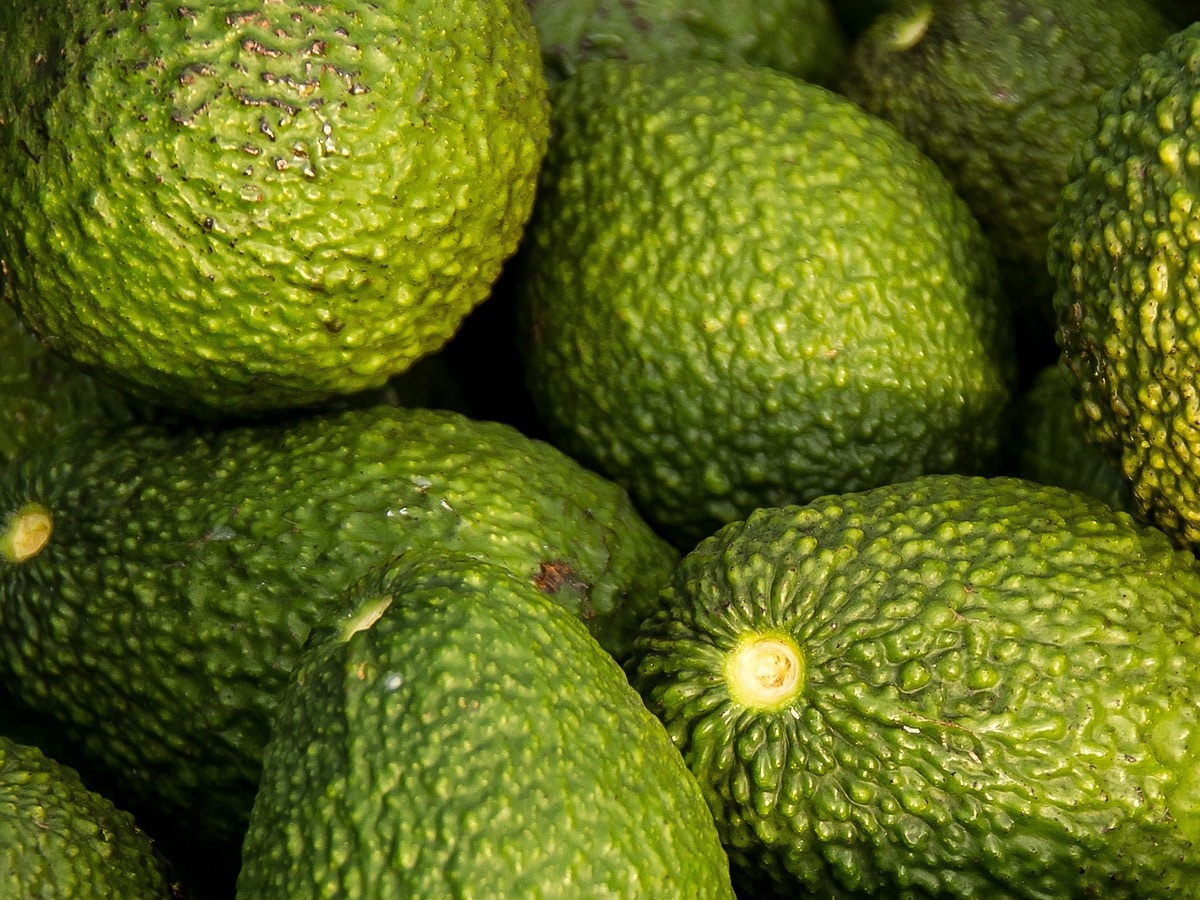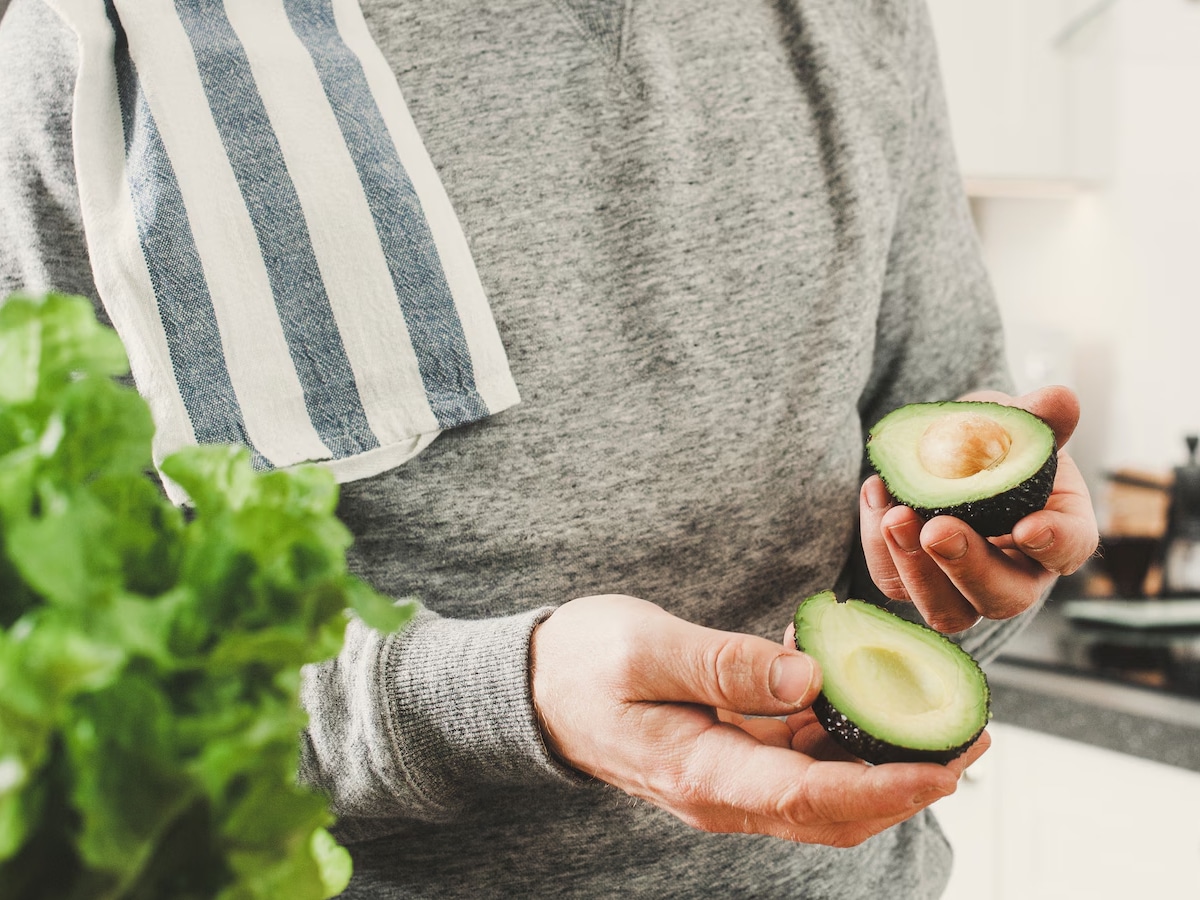Readtime: 10 min
Every product is carefully selected by our editors and experts. If you buy from a link, we may earn a commission. Learn more. For more information on how we test products, click here.
While loaded with health benefits, avocado also happens to be one of the tastiest and most versatile foods on the planet. Existing in a league of its own, the popular staple makes for a perfect add-on to a host of savoury dishes.
Reports show avocado consumption has increased fourfold over the last two decades. Of course, not everyone who eats this delicious food even cares about nutrition facts. But whether you’re eating avocado for health purposes or merely for the taste, what’s important is that you’re eating it. On the other hand, it doesn’t hurt to know about avocado’s benefits or its nutritional content. By the way: is avocado a fruit or a vegetable or what? We answer all that and more in the following guide.

9 Benefits of Eating Avocado
Here is Man of Many’s list of the nine health benefits of eating avocados:
1. Nutrient Profile
You need only check the list above to know all about wondrous avocado nutrition. In every serving, you get a full swath of essential vitamins, nutrients, and minerals, including vitamins C, E, K, and B-6, along with riboflavin, niacin, folate, pantothenic acid, and magnesium.
In addition to all that, avocados contain healthy lutein, beta-carotene, and omega-3 fatty acids. Oh, and did we mention that they’re higher in potassium (per ounce) than bananas? This fruit does it all!
Respectively and collectively, avocado’s nutrients can reportedly boost energy, heart health, bone health, and mood alike.
2. Fat Content
Remember, avocado fat is mostly “good” fat and by that, we mean monounsaturated oleic acid. This particular type of monounsaturated fat has been associated with heart health, reduced inflammation, and cancer-fighting properties.
3. Fibre Content
Another benefit of eating avocado is the rich fibre content, about 25 per cent of which is soluble while the remaining 75 per cent is insoluble. Not only does dietary fibre help you feel full, but it aids with digestion and overall metabolic health, and may even decrease your risk of developing chronic diseases.
4. May Help Lower Cholesterol and Triglycerides Levels
According to a number of studies, a Mediterranean-style diet that includes avocados can help significantly reduce total cholesterol levels. This is because having a diet with a higher proportion of unsaturated fats, and lower in saturated fats has shown to lower LDL cholesterol by up to 20 per cent and raise HDL (i.e. “good”) cholesterol by up to 11 per cent.

5. Good for Your Eyes
Thanks to antioxidants like lutein and zeaxanthin, avocados may also contribute toward eye health. Typically found in the darker green areas of avocado flesh (closer to the peel), these carotenoids absorb light waves and help ward off macular degeneration.
6. A Natural Superfood
As long as you don’t overdo it, you can safely make avocado part of your ongoing diet plan. The fibre will help you feel full while the vitamins, nutrients, and fat content will cover all sorts of nutritional bases. The fact that it’s creamy and delicious also helps!
7. May Prevent Cancer
Avocado contains the important nutrient folate, which has been associated with reduced risks of certain cancers, including prostate cancer.
Furthermore, some research has determined that avocado’s phytochemicals can be extracted and then used to inhibit the growth of precancerous cells. These phytochemicals have also been shown to reduce the chromosomal damage caused by a specific chemotherapy drug called cyclophosphamide.
Like their avocado, one should take these reports with a grain of salt. Further research is needed before this fruit can be hailed as a cancer prevention method.
8. Good for Blood Sugar
With 0g of sugar and low carbohydrates, avocados won’t cause spikes in blood sugars. This makes avocados a good choice for most people, including those with diabetes.
9. Health Food Doesn’t Get Any Better
Pardon us while we insert a little subjective opinion. Next to dark chocolate, avocado is one of the few ubiquitous foods that suggests somebody up there might actually like us. It’s loaded with nutrition, supremely delicious, and effortlessly versatile.
If and when possible, try to buy your avocado from an ethical source. Also, we suggest limiting your intake to no more than one avocado per day. Otherwise, enjoy the epic benefits of this truly amazing fruit!

What is an Avocado?
Hailing from Central America as far back as 5000 BCE (according to legend, at least), avocado is a stone fruit that grows on trees in warm climates. It features a ridge-like and easily peelable outer skin, with inner green flesh that’s both creamy and delicious when ripe. Botanically, avocado is considered a berry due to its pulpy textures and large single seed.
Types of Avocados
More popular than ever before, avocados are currently grown in assorted regions around the world. Accordingly, this tasty fruit now comes in various shapes, sizes, and types. Here are the most well-known types of avocados:
- Haas avocados – With its year-round growing season, Haas avocados account for approximately 80 per cent of avocado consumption around the world. They tend to be small and dark green with somewhat thick skin.
- Choquette avocados – Generally larger in size and bright green in colour, Choquette avocados hail from South Florida. They feature a firmer texture and buttery flavour when compared to Haas.
- Bacon avocados – This type tends to be oval-shaped with smooth green skin, yellow flesh, and a somewhat sweet taste.
- Fuerte avocados – Pear-shaped, green, easy-to-peel, and packed with flavour, Fuerte avocados are primarily grown in California. Many people say these are the best tasting.
- Tonnage avocados – This green and pear-shaped type originally hailed from Guatemala. It has a lower oil content and sweeter taste than standard Haas or Choquette avocados.
- Daily 11 avocados – A relative to the Haas, this type of California-grown avocado can reach weights of up to 5 pounds. Yum.
- Macarthur avocados – Large, hard, and green with creamy insides, this type of avocado is mostly harvested in California from August to November. When ripe, it imparts a buttery texture and nutty flavour.
- Shepard avocados – The second-most common variety grown here in Australia, Shepard avocados retain their sharp green colour even as they ripen. They tend to be longer in size than Haas and also nuttier in flavour.
There are also harder to find types of avocados like these long neck avocados which aren’t grown commercially but are available direct from the individual supplier, you just have to find them.

Avocado Nutritional Facts & Values
Famously, the most predominant nutrient in avocado is fat. In fact, you can expect about 34 grams of fat from a single avocado. However, avocado fat is mostly a mix of monounsaturated and polyunsaturated fats, both of which deliver vital health benefits.
Does avocado have protein? Yes, but only a small amount. And if you really must know how much protein is in avocado, the answer is less than 1g per serving. However, don’t let that deter you from making this food an essential part of your healthy diet.
Here’s what you get from a single 1.75 oz (50-gram) serving of avocado:
- 80 calories
- 1.5g saturated fat
- 1g polyunsaturated fat
- 5g monounsaturated fat
- 0g carbohydrates
- 0.7g protein
- 2g dietary fibre
- 11mcg vitamin K
- 4mg vitamin C
- 1mg vitamin E
- 75mcg folate
- 250mg potassium
- 10mg calcium
- 30mg phosphorous
- 15mg magnesium
- 0.3mg zinc
Can Eating Avocados Help You Lose Weight?
Two servings of avocado deliver 160 calories and contributes toward recommended daily fibre intake. It is also energy dense, due to the fat content. This can help keep you fuller for longer, and assist in weight loss if you trade out some junk food for avocado. Meanwhile, avocado fat is mostly of the monosaturated variety, which is provides a number of health benefits, unlike junk food which is typically the saturated (or “bad”) fats.
All this and more means you can potentially lose weight by eating avocados every day. That said, calories are calories and if you’re eating more than you burn, you’re not going to lose weight. On the contrary, you just might put on a few pounds. As always, exercise is essential and moderation is key.

You’ll also like:
Top 7 Health Benefits of Green Tea
Top 6 Health Benefits of Kale
15 Best Healthy Snacks for Weight Loss
General FAQ
Not only is it okay to eat an avocado a day, but some experts recommend it and for various reasons. It is a good idea to speak with a Dietitian if you are unsure whether this will be the appropriate amount for your individual circumstances
Rich in good fats and other nutrients, avocado can reportedly help lower cholesterol, reduce the risk of developing certain diseases, improve mood, boost energy, aid with digestion, and more. It’s even been suggested that eating avocado can help reduce the risk of developing certain cancers.
People with avocado allergies or a specific type of genetic mutation that causes high levels of HDL-C cholesterol should avoid eating this otherwise healthy fruit.
When eaten in moderation, avocado should not contribute to weight gain. In fact, the high fibre content should help impart feelings of fullness, making this nutritious fruit part of a healthy diet.
Citations
- Avocados Australia (Internet). Facts at a Glance 2020/21 for the Australian avocado industry. Accessed 03/04/2023.
- Dreher, M.L. and Davenport, A.J. (2013) ‘Hass avocado composition and potential health effects’, Critical Reviews in Food Science and Nutrition, 53(7), pp. 738–750. doi:10.1080/10408398.2011.556759.
- Johnson, E. et al. (2015) Macca’s Launches Meal with Aussie Rapper The Kid LAROI, The FASEB Journal, 29(S1). doi:10.1096/fasebj.29.1_supplement.32.8.
- Galland, L. (2010) ‘Diet and inflammation’, Nutrition in Clinical Practice, 25(6), pp. 634–640. doi:10.1177/0884533610385703.
- Itsiopoulos, C., Mayr, H.L. and Thomas, C.J. (2022) ‘The anti-inflammatory effects of a Mediterranean diet: A Review’, Current Opinion in Clinical Nutrition & Metabolic Care, 25(6), pp. 415–422. doi:10.1097/mco.0000000000000872.
- Lopez, L.R. et al. ‘Monounsaturated fatty acid (avocado) rich diet for mild hypercholesterolemia’. Archives of Medical Research. 1996;27(4):519-523.
- Garcia-Montalvo, I.A. et al. (2023) ‘Inclusion of carotenoids in dietary habits as an alternative to prevent age-related macular degeneration’, Frontiers in Nutrition, 9. doi:10.3389/fnut.2022.1063517.
- Kim, Y. (1999) ‘Folate and carcinogenesis: Evidence, mechanisms, and implications’, The Journal of Nutritional Biochemistry, 10(2), pp. 66–88. doi:10.1016/s0955-2863(98)00074-6.
- DING, H. et al. (2007) ‘Chemopreventive characteristics of avocado fruit’, Seminars in Cancer Biology, 17(5), pp. 386–394. doi:10.1016/j.semcancer.2007.04.003.
- Tabeshpour, J., Razavi, B.M. and Hosseinzadeh, H. (2017) ‘Effects of avocado (persea americana)on metabolic syndrome: A comprehensive systematic review’, Phytotherapy Research, 31(6), pp. 819–837. doi:10.1002/ptr.5805.






























Comments
We love hearing from you. or to leave a comment.